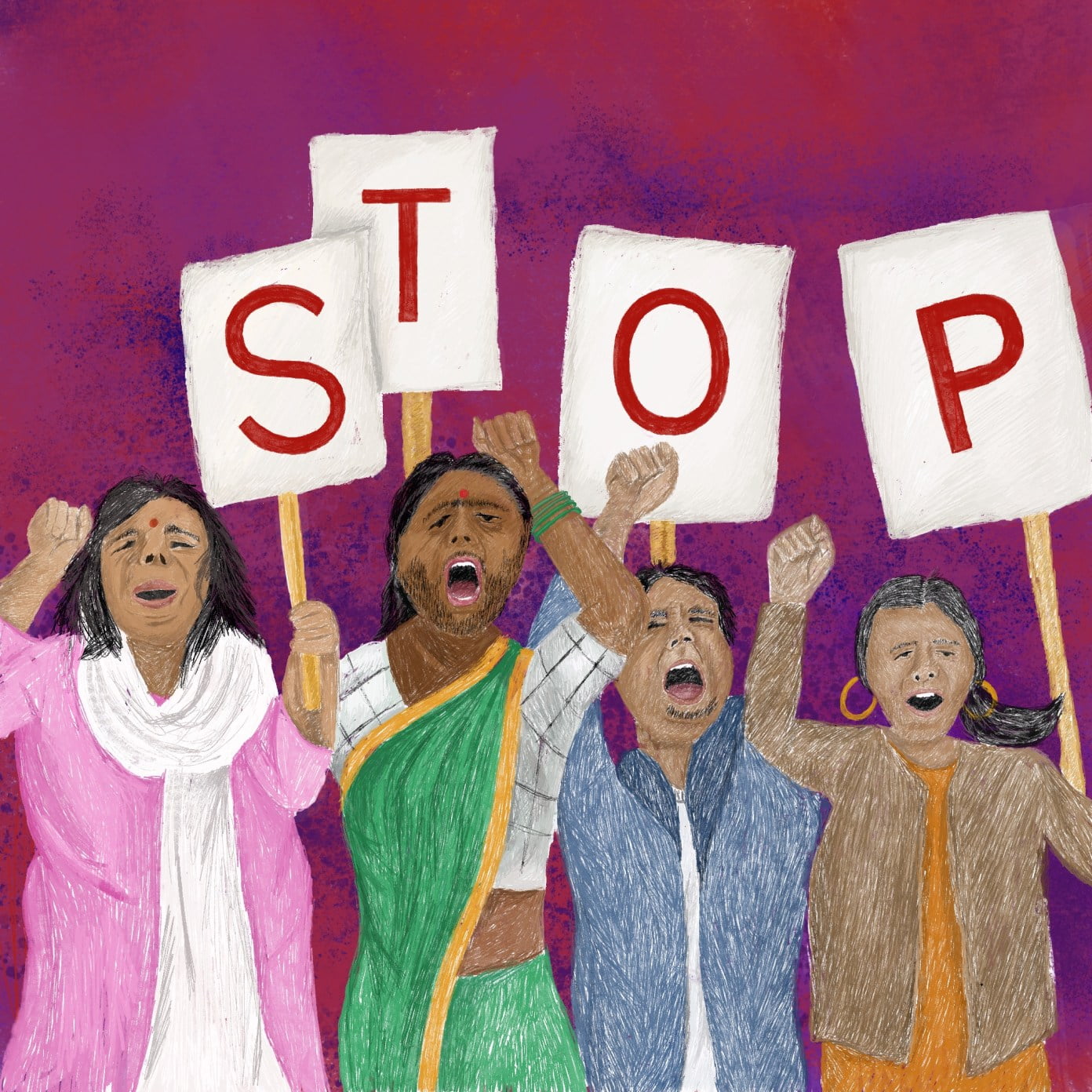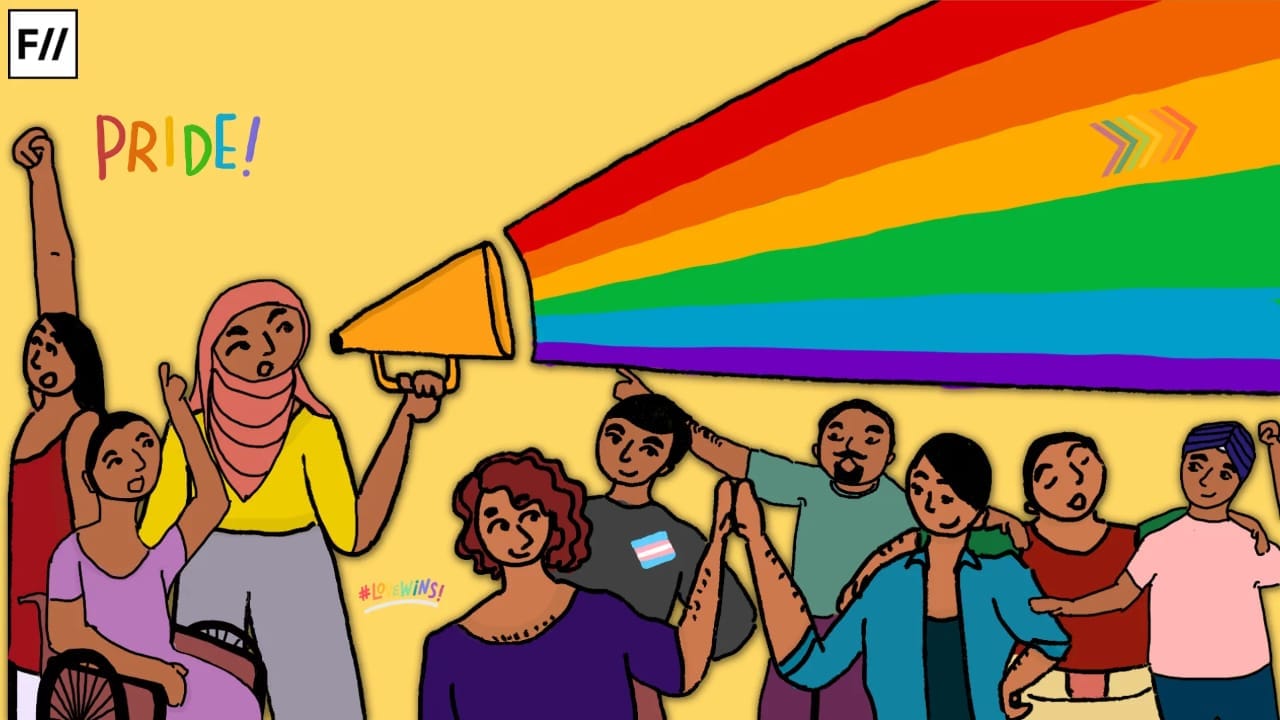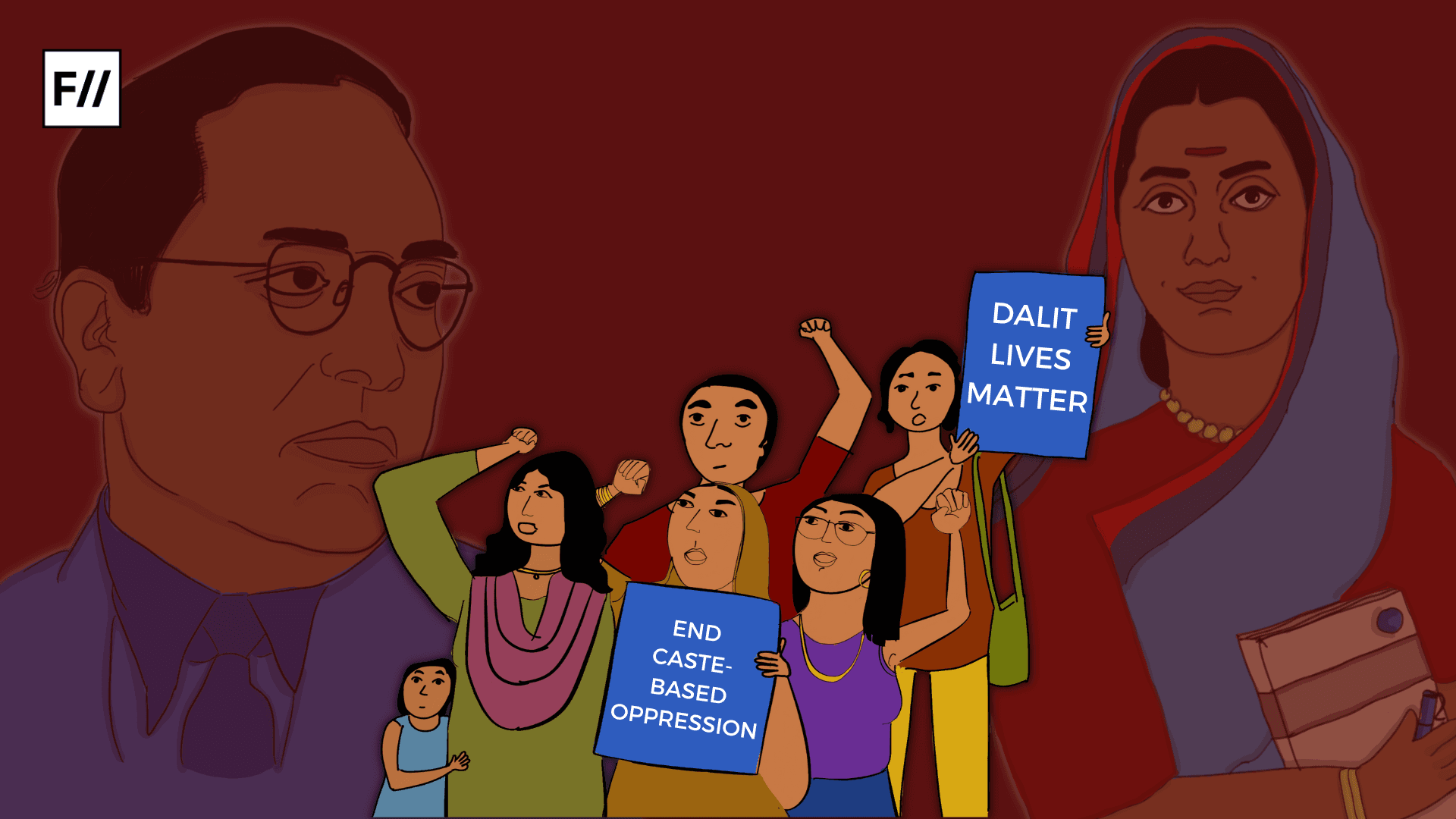Trigger Warning: Mention of sexual violence and rape
In the further diversity of Indian society, where identities and histories are fragmented, Dalit identity shares a unique, marginal, but mostly oppressed position. The position held by Dalits in the stratified caste system traditionally sets them at the lowest of all caste levels, subjecting them to degraded living conditions and an inadequate means of earning a livelihood. These have remained slogans within their lives for long in everything that Dalits have faced systematically, from violence to sheer oppression.
The threat of hate crimes against Dalit communities in India is not isolated but a widespread problem. It ranges from verbal abuse and social exclusion to physical assaults, sexual violence, and at the extreme, murder. The people who conduct these evil acts, most of whom are from the upper castes, do it with impunity since they know there will be no prosecution, and neither will they face any punishment that is condoned by both societal apathy and law enforcement agencies.
The normalisation of hate crimes against Dalits
The roots of hate crimes against Dalits can be traced to the caste system with its stringent demeanour that continues in many aspects of Indian society in both social and power issues. Dalits are pigeonholed as erstwhile ‘untouchables,’ labouring menial tasks and denied education, job placements, as well as access to basic amenities. This systemic outcasting breeds hostility and makes those from the dominant castes want to re-dominate and do anything they desire, such as discrimination, physical attacks, and violence to assert their superiority.
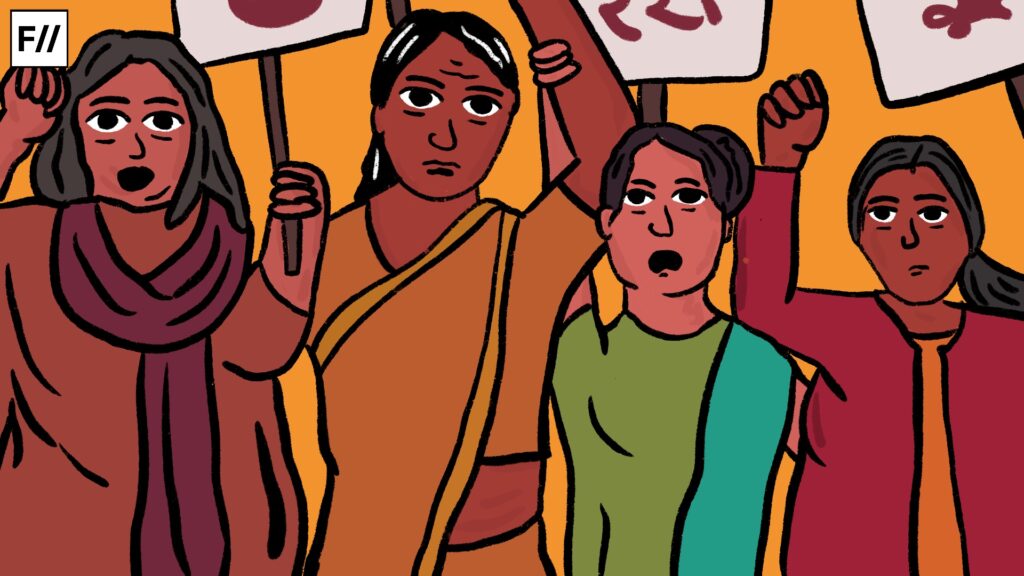
What makes hate crimes against Dalits particularly dirty is the normalisation of violence and the lack of accountability for perpetrators. In many cases, such crimes are passed off as mere inter-caste clashes or personal disputes, effectively hiding the underlying dynamics of caste from view. Law enforcement agencies even do not register cases or do the job of investigation in a diligent manner, which further perpetuates the impunity and continuously creates opportunities for more brutalities.
Moreover, Dalit communities are often denied justice and redress due to institutional biases and power structures that are caste-based. Legal mechanisms designed to protect Dalits from caste-based discrimination and violence are usually underutilised or misused to curtail the efforts of victimised Dalits for justice. The crime situation has deteriorated, and there are disturbing reports of unequal treatment of the Dalit community within the justice system. This has resulted in alarming headlines in major newspapers highlighting the plight faced by the Dalit community.
The normalisation of violence against Dalits expresses a kind of acceptance among the caste-based society in which their life gets exploited, their pain viewed as inevitable or justly deserved served, and their struggles shifted to the fringes of public discourse. Such normalisation helps establish a culture of impunity and encourages the perpetrators of such horrendous atrocities to continue perpetrating and go unpunished. There have been notable instances that serve as stark reminders of the inhumane treatment of Dalits in India, one of these was “The Bhagana Rape Case (2014).”
The Bhagana Rape Case 2014
The Bhagana rape case had been in focus for the gangrape of four girls belonging to the Dalit community, ranging in age from 13 to 18 years, in the state of Haryana’s village of Bhagana. These girls had attempted to ease themselves in the field when they came across an assault by their tormentors who raped these girls later. What followed was not just a heinous crime but a prolonged battle for justice, marred by apathy, indifference, and caste-based discrimination.
The perpetrators, belonging to dominant castes, dared to assault the dignity and rights of these girls, relying upon their confidence that they were going to get away with it without any recourse. It was to no avail; their confidence was not entirely misplaced. This happened after the incident, where the victims and their families faced harassment and threats, compelling them to take refuge in Delhi to avoid being hounded further.
Despite constitutional safeguards and legal provisions, Dalits still face the problems of marginalisation and oppression, leading to their denial of basic human rights. Their suffering is often normalised in society, relegated to the sides as mere statistics or sensational headlines that fizzle away with time.
The Bhagana rape case was not an isolated incident but a manifestation of the systemic discrimination and violence that Dalits have to face daily. Despite constitutional safeguards and legal provisions, Dalits still face the problems of marginalisation and oppression, leading to their denial of basic human rights. Their suffering is often normalised in society, relegated to the sides as mere statistics or sensational headlines that fizzle away with time.
According to the report of Newslaundry, Dalits assert that their grievances are routinely disregarded by both the administration and the State. According to Virender Singh Bagodhiya, a Dalit leader interviewed by Newslaundry, when they approached Bhupinder Singh Hooda, the former Chief Minister of Haryana, for assistance, he callously dismissed their pleas, prioritising his identity as a Jat over his duties as CM. This attitude reflects a familiar pattern in Haryana’s socio-political dynamics, where, as one protester noted, there seems to be unequal treatment under the law, with one set of rules for Dalits and another for Jats.
Dalits often are accorded a second-class position whereby their voices get silenced, and their suffering goes unheard. The Bhagana rape case represents this realm vividly, where the intersection of caste and gender oppression results in atrocities unspoken.
The political dynamics surrounding the Dalit identity
The impact of political parties exploiting Dalit votes for electoral gains and subsequently neglecting their welfare post-election is significant and deeply troubling. This phenomenon highlights a systemic issue within Indian politics where marginalised communities are often treated as mere vote-banks rather than as citizens deserving of genuine representation and socio-economic empowerment.
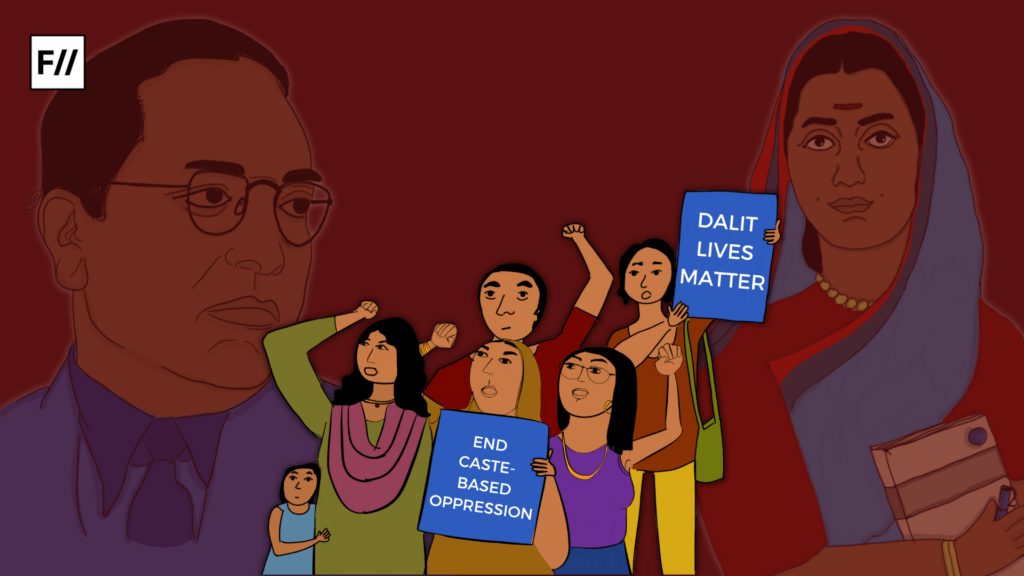
Fundamentally, the utilisation of Dalit votes as a strategic tool by political parties has several immediate effects. Parties often make promises and commitments during election campaigns, pledging to address Dalit concerns, provide better opportunities, and uplift their socio-economic status. These promises are aimed at securing Dalit support and maximising electoral success. Consequently, Dalit voters may feel compelled to align with a particular party based on these assurances, hoping for positive change and representation.
However, the post-election reality often falls short of these promises, leading to disillusionment and frustration among Dalit communities. Once in power, political parties may prioritise their agendas and interests over the welfare of Dalits.
The cause and effect of this phenomenon are deeply intertwined with the broader dynamics of caste-based politics in India. Caste continues to play a significant role in electoral calculations, with parties often relying on caste-based alliances and strategies to consolidate their support base. Dalits, as one of the most marginalised caste groups, are particularly vulnerable to manipulation by political parties seeking to exploit their votes.
According to the report of Human Rights Watch, in August, the National Crime Records Bureau reported 50,900 cases of crimes against Dalits in 2021, an increase of 1.2 per cent over the previous year. Crimes against Adivasi communities increased by 6.4 per cent, at 8,802 cases. In September, two Dalit teenage girls were raped and killed in Uttar Pradesh, once again spotlighting that Dalit and Adivasi women and girls are at heightened risk of sexual violence.
The Bhagana rape case sparked nationwide outrage and prompted demands for justice, but the path to accountability has been arduous and fraught. The victims and their families have faced immense pressure and threats from the perpetrators and their allies, making it difficult to pursue legal action. The local authorities, who are often complicit in upholding the caste hierarchy, have been slow to investigate the case and provide support to the survivors.
This lack of urgency and commitment to addressing Dalit atrocities is emblematic of a broader pattern of neglect and indifference. Countless other cases of violence and discrimination against Dalits have been met with a similar lack of responsiveness from the authorities and the public at large. The normalisation of these incidents has allowed the cycle of oppression to continue, with perpetrators evading justice and the Dalit community bearing the brunt of the consequences.
By bringing attention to cases like the Bhagana Rape Case, we must challenge this normalisation and demand accountability for the perpetrators of such monstrous acts. Furthermore, it is crucial to remember and acknowledge these cases, even as time passes. It is all too easy for society to forget about these atrocities and move forward, but doing so only perpetuates injustice.
Through the recognition of Dalit History Month, we have an opportunity to honour the resilience and contributions of the Dalit community, while also confronting the ongoing struggles they face. By amplifying the voices of Dalit activists, scholars, and community members, we can work to dismantle the systemic barriers that have long denied them their rightful place in Indian society.
Ultimately, the Bhagana rape case and the broader issues of Dalit oppression serve as a stark reminder of the work that remains to be done. True justice and equality can only be achieved when the deeply entrenched caste-based discrimination and violence against Dalits are finally and unequivocally addressed. By remembering and learning from these incidents, we can honour the victims and work towards a more just and inclusive future for all.
Reflecting on the Bhagana rape case serves as a reminder to the voters, especially the first-time voters to stay vigilant and avoid falling into the trap. It’s imperative during elections to identify candidates truly dedicated to uplifting the Dalit issues, rather than using them for selfish motives.
